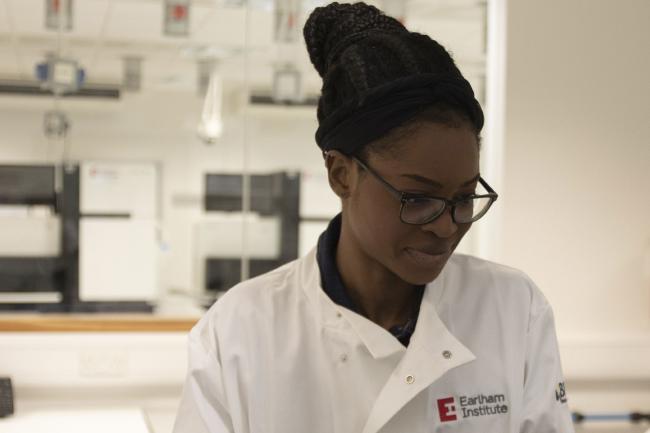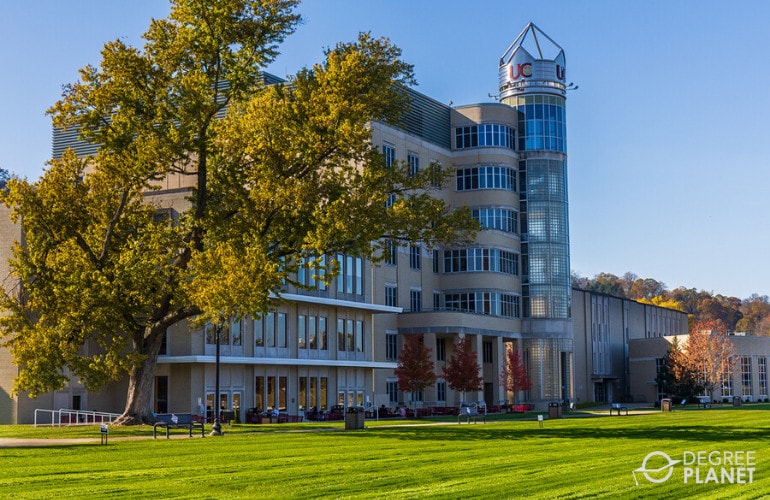- Our Culture
- Open and FAIR Data
- Research projects
- Publications
- Cellular Genomics
- Decoding Biodiversity
- Delivering Sustainable Wheat
- Earlham Biofoundry
- Transformative Genomics
- Scientific Groups Our groups work at the forefront of life science, technology development, and innovation.
- High-Performance Sequencing Dedicated and efficient high-throughput genomics led by experts in sequencing and bioinformatics.
- Single-cell and Spatial Analysis Platforms to support single- or multi-cell analysis, from cell isolation, to library preparation, sequencing and analysis.
- Earlham Biofoundry Providing expertise in synthetic biology approaches and access to laboratory automation
- Tools and resources Explore our software and datasets which enable the bioscience community to do better science.
- Cloud Computing Infrastructure for Data-intensive Bioscience
- Web Hosting for Sites, Tools and Web Services
- Earlham Enterprises Ltd
- Events Calendar Browse through our upcoming and past events.
- About our training High-quality, specialist training and development for the research community.
- Year in industry Supporting undergraduate students to develop skills and experience for future career development.
- Internships and opportunities Opportunities for the next generation of scientists to develop their skills and knowledge in the life sciences.
- Immersive visitors A bespoke, structured training programme, engaging with the faculty, expertise and facilities at the Earlham Institute.
- News Catch up on our latest news and browse the press archive.
- Articles Explore our science and impact around the world through engaging stories.
- Impact Stories Find out how we are contributing to the major challenges of our time.
- Impact Through Policy Advocacy Engaging across the political spectrum to exchange knowledge and inform public policy.
- Public engagement and outreach Communicating our research to inspire and engage learning.
- Communications at EI We work across digital, multimedia, creative design and public relations to communicate our research.
- Our Vision and Mission
- Inclusivity, diversity, equality and accessibility
- Scientific Advisory Board
- Our Management Team
- Operations Division
- Careers overview
- Postgraduate Studies
- Group leaders
- Fellowships
- Life at Earlham Institute
- Living in Norfolk


10 things you need to know before starting a PhD degree
So you want to do a PhD degree, huh? Here we've got everything you need to know about getting started.
So you want to do a PhD degree, huh? Are you sure about that? It’s not going to be an easy decision, so I’ve put together a list of 10 things you need to know before starting a PhD degree. Oh, and don’t panic!
I have recently graduated from the University of Manchester with a PhD in Plant Sciences after four difficult, but enjoyable, years. During those four years, I often felt slightly lost – and there was more than one occasion on which I didn’t even want to imagine writing up my thesis in fear of delving into fits of panic.
On reflection, I realise that – to quote a colleague – commencing my PhD was like “jumping in the deep end with your eyes closed.” If only I’d known to take a deep breath.
1. Are you sure you want to do a PhD degree?
Let’s be under no false impressions, completing a PhD isn’t easy. There will be times when you feel like Wile E Coyote chasing after the Roadrunner – a little bit out of your depth a lot of the time. It’s four years of your life, so make sure it is what you really want to do.
If you want to pursue a career in science, a PhD isn’t always necessary.
It is possible to make great inroads into industry without a doctoral degree. That said, a PhD can also be a very useful qualification with many transferable skills to add to your CV.
By the time you’ll have finished, you can include essentials such as time management, organisational skills, prioritising workloads, attention to detail, writing skills, presenting to an audience – and most importantly – resilience, to name but a few.
2. Choose your project, and supervisor, wisely.
This is very important.
Time after time, our experienced scientists at EI, including Erik Van-Den-Bergh (and I agree) say, “ make sure you’re extremely passionate about exactly that subject. ” When I saw the PhD opening that I eventually was offered, I remember being demonstrably ecstatic about the project before I’d even started it.
I was always interested in calcium signalling and organised a meeting with my potential supervisor immediately, which (to quote Billy Connolly) I leapt into in a mood of gay abandon.
Not only does this help you to keep engaged with your project even through the painstakingly slow times, it also greatly enhances your ability to sell yourself in an interview. If you can show passion and enthusiasm about the project and the science then you’ll be that one step ahead of other candidates – which is all the more important now that many studentships are competitive.
You have to be the best out of many, often exceptional candidates.
However, as important as it is to be passionate about your project, make sure that the person who will be supervising you is worthy.
Does your potential supervisor have a prolific track record of publishing work? What is the community of scientists like in the lab you may be working in? Are there experienced post-doctoral scientists working in the lab? Who will your advisor be? Is your supervisor an expert in the field you are interested in? Is the work you will be doing ground-breaking and novel, or is it quite niche?
There is nothing more frustrating – and I know many PhD degree students with this problem – than having a supervisor who is rarely there to talk to, shows little interest in your work, and cannot help when you are struggling in the third year of your project and some guidance would be much appreciated.
Personally, and I was very lucky to have this, I think it’s incredibly useful to have two supervisors. My PhD degree was split between the University of Manchester and the Marine Biological Association in Plymouth. Between my supervisors, I had two people with expertise in different fields, who could give me some fantastic advice from different perspectives. This also meant that I had two people to check through my thesis chapters and provide useful comments on my drafts.

Make sure you are passionate about your subject before taking it to PhD level. And by passionate I mean really passionate.
For a start, you will most likely have to write a literature review in your first three months, which if done well will form the main bulk of your thesis introduction and will save you a lot of stress and strain when it comes to writing up.
At the end of your first year, you will have to write a continuation report, which is your proof that you deserve to carry on to the end of your three or four years. This doesn’t leave much time for lab work, which means time management is incredibly important. If you think you’ll be able to swan in at 11 and leave at 3, think again.
Fundamentally, never, ever rest on your laurels! As tempting as it may be to slack-off slightly in the second year of your four year PhD, don’t.
4. Be organised.
This is a no-brainer but still, it’s worth a mention. Take an hour on a Monday morning to come up with a list of short-term and long-term goals. You’ll probably have to present your work at regular lab meetings, so it’s always worth knowing what has to be done (lest you look a pillock in front of the lab when there’s nothing to show for your last two weeks.)
It’s always good to have a timeline of what will be done when. If you have a PCR, maybe you can squeeze in another experiment, read a few papers, start writing the introduction to your thesis, or even start collecting the data you already have into figures.
The more good use you make of your time, the easier it’ll be to finish your PhD in the long run. Plus, it’s lovely to sit back and look at actual graphs, rather than worry about having enough to put into a paper. Once you’ve typed up your data, you’ll realise you’ve done far more than you had anticipated and the next step forward will be entirely more apparent.
5. Embrace change – don’t get bogged down in the details.
Felix Shaw – one of our bioinformatics researchers at EI – put it best when he said, “ it felt like I was running into brick walls all the way through [my PhD]… you’d run into a brick wall, surmount it, only to run straight into another. ”
You’ll find that, often, experiments don’t work. What might seem like a great idea could turn out to be as bad as choosing to bat first on a fresh wicket on the first day of the third Ashes test at Edgbaston. (Yeah, we don't know what that means either - Ed).
Resilience is key while completing your PhD. Be open to change and embrace the chance to experiment in different ways. You might even end up with a thesis chapter including all of your failures, which at the very least is something interesting to discuss during your viva voce .
6. Learn how to build, and use, your network.
As a PhD student, you are a complete novice in the world of science and most things in the lab will be – if not new to you – not exquisitely familiar. This matters not, if you take advantage of the people around you.
Firstly, there are lab technicians and research assistants, who have probably been using the technique you are learning for years and years. They are incredibly experienced at a number of techniques and are often very happy to help show you how things are done.
There are postdocs and other PhD students, too. Not only can they help you with day-to-day experiments, they can offer a unique perspective on how something is done and will probably have a handy back-catalogue of fancy new techniques to try.
There are also a bunch of PIs, not limited to your own, who are great to talk to. These people run labs of their own, have different ideas, and might even give you a job once you’ve completed your PhD.
Don’t limit yourself to the labs directly around you, however. There are a massive number of science conferences going on all around the world. Some of them, such as the Society of Biology Conference, take place every year at a similar time in different locations, attracting many of the leaders in their respective fields.
If you are terrified by the prospect of speaking at a full-blown science conference and having your work questioned by genuine skeptics, there are also many student-led conferences which will help you dangle your fresh toes in the murky waters of presenting your work.
One such conference, the Second Student Bioinformatics Symposium, which took place at Earlham Institute in October 2016, was a great place for candidates to share their projects with peers, who are often much more friendly than veteran researchers with 30 year careers to their name when it comes to the questions at the end of your talk.
Another great reason to attend conferences, of course, is the social-side too – make the most of this. You never know who you might meet and connect with over a few drinks once the talks are over and the party commences.
7. Keep your options open.
You should be aware that for every 200 PhD students, only 7 will get a permanent academic post , so it’s incredibly unlikely that you’ll become a Professor – and even if you make PI, it probably won’t be until your mid-forties.
You may also, despite having commenced along the academic path, decide that actually, working in a lab environment isn’t for you. Most PhD graduates, eventually, will not pursue an academic career, but move on to a wide range of other vocations.
It might be that Science Communication is more up your street. This was certainly the case for me – and I made sure that I took part in as many public engagement events as possible while completing my PhD. Most Universities have an active public engagement profile, while organisations such as STEM can provide you with ample opportunities to interact with schools and the general public.
You might also consider entrepreneurship as a route away from academia, which might still allow you to use your expert scientific knowledge. There are a variety of competitions and workshops available to those with a business mind, a strong example being Biotechnology YES.
I, for example, took part in the Thought for Food Challenge, through which I have been able to attend events around the world and meet a vast array of like-minded individuals. Many of the participants from the challenge have gone on to set up successful businesses and have even found jobs as a result of the competition.

8. Balance.
Remember that you still have a life outside of your PhD degree – and that this can be one of the greatest opportunities to make amazing friends from around the world.
A science institute is usually home to the brightest students from a variety of countries and can provide a chance to experience a delightful range of different people and cultures. Don’t just stick to the people in your lab, go to events for postgraduate students and meet people from all over campus.
There are usually academic happy hours happening on Fridays after work where you can buy cheap beer, or some lucky institutions even have their own bar. At Norwich Research Park, we not only have the Rec Centre, along with bar, swimming pool, calcetto, samba classes, archery, and a range of other activities, but there are also biweekly “Postdoc pub clubs” which are very fun to join on a Tuesday evening.
Maintain your hobbies and keep up with friends outside of your PhD and you’ll probably find it’s not that gruelling a process after all.
Plus, the people you meet and become friends with might be able to help you out – or at least be able to offer a sympathetic shoulder.

9. Practical advice.
If, after reading all of this, you’re still going to march forth and claim your doctorhood, then this section should be rather useful.
Firstly, make sure your data is backed up. It’s amazing how many people don’t do this and you’d be bonkers not to. Keep your work saved on a shared drive, so that if your computer decides to spontaneously combust upon pressing the return key, you won’t have lost all of your precious work – or have to go through every one of your lab books and type it all up again.
Secondly, don’t leave your bag in the pub with your half-written thesis in it. I did this, the bag was fine, I was in a state of terror for at least half an hour before the kind person at Weatherspoons located said bag.
Thirdly, read. Read broadly, read anything and everything that’s closely related to your project – or completely unrelated. It’s sometimes amazing where you might find a stroke of inspiration, a new technique you hadn’t thought of … or even in idea of where you might like to go next.
Finally, ask questions – all of the time. No matter how stupid it might sound in your head, everyone’s probably been asked it before, and if you don’t ask, you don’t get.
You’ll probably look far less stupid if you just ask the person standing next to you how the gradient PCR function works on your thermal cycler rather than standing there randomly prodding buttons and looking flustered, anyway.
10. Savour the positives.
At the end of all of this, it has to be said that doing a PhD is absolutely brilliant. There’s no other time in your life that you’ll be this free to pursue your very own project and work almost completely independently. By the time you come to the end of your PhD, you will be the leading expert in the world on something. A real expert! Until the next PhD student comes along …
Related reading.

A PhD, is it worth it? Just ask our students

The realities of doing a PhD

My advice for PhD students? See what bites

COVID and my PhD: to lockdown and back

How does a PhD work and how to find the right one

Building the confidence to take on a PhD

PhD life, 10 things we learned in our first six months

What’s the third year of a PhD like? Tips for navigating your PhD

PhD by experience
- Scientific Groups
- High-Performance Sequencing
- Single-cell and Spatial Analysis
- Tools and resources
- Events Calendar
- About our training
- Year in industry
- Internships and opportunities
- Immersive visitors
- Impact Stories
- Impact Through Policy Advocacy
- Public engagement and outreach
- Communications at EI
- PRO Courses Guides New Tech Help Pro Expert Videos About wikiHow Pro Upgrade Sign In
- EDIT Edit this Article
- EXPLORE Tech Help Pro About Us Random Article Quizzes Request a New Article Community Dashboard This Or That Game Forums Popular Categories Arts and Entertainment Artwork Books Movies Computers and Electronics Computers Phone Skills Technology Hacks Health Men's Health Mental Health Women's Health Relationships Dating Love Relationship Issues Hobbies and Crafts Crafts Drawing Games Education & Communication Communication Skills Personal Development Studying Personal Care and Style Fashion Hair Care Personal Hygiene Youth Personal Care School Stuff Dating All Categories Arts and Entertainment Finance and Business Home and Garden Relationship Quizzes Cars & Other Vehicles Food and Entertaining Personal Care and Style Sports and Fitness Computers and Electronics Health Pets and Animals Travel Education & Communication Hobbies and Crafts Philosophy and Religion Work World Family Life Holidays and Traditions Relationships Youth
- Browse Articles
- Learn Something New
- Quizzes Hot
- Happiness Hub
- This Or That Game
- Train Your Brain
- Explore More
- Support wikiHow
- About wikiHow
- Log in / Sign up
- Education and Communications
- College University and Postgraduate
- Academic Degrees
- Doctoral Studies
How to Apply for a PhD in the US
Last Updated: January 18, 2024 Approved
This article was co-authored by Carrie Adkins, PhD . Carrie Adkins is the cofounder of NursingClio, an open access, peer-reviewed, collaborative blog that connects historical scholarship to current issues in gender and medicine. She completed her PhD in American History at the University of Oregon in 2013. While completing her PhD, she earned numerous competitive research grants, teaching fellowships, and writing awards. wikiHow marks an article as reader-approved once it receives enough positive feedback. This article received 20 testimonials and 96% of readers who voted found it helpful, earning it our reader-approved status. This article has been viewed 632,197 times.
Getting a PhD is a challenging undertaking that takes years to achieve. It can also be an incredibly rewarding experience: you'll become a true expert in your field, and you'll be able to apply for a number of interesting jobs, including academic ones. If you're considering a PhD, start by figuring out which programs best fit your needs (they may not always be the ones at the biggest or most prestigious schools). Once you know what those programs are, you can tailor your materials accordingly and put together the best possible application packages.
Ask the wikiHow College Coach
Researching Schools and Programs

- Keep in mind that it is not necessary for you to have a dissertation topic already chosen or even to have an extremely specific research focus. At this stage, you should just have a general idea of what you want to study and why. For example, if you are considering a PhD in English, then you should at least have an idea of the literary period that you wish to focus on.

- For example, if you are planning to pursue a PhD in Chemistry, then you should find out more about the lab facilities at the university that you are considering.
- Try to identify as many potential schools as you can. Graduate school is competitive and you will have a better chance of getting accepted if you submit multiple applications.

- Keep in mind that you may be working closely with the professor(s) you identify, so it is important to select professors who you really admire and whose research genuinely interests you.

- Keep in mind that funding opportunities are competitive. Putting forth a strong application may increase your chances of getting funding, but there are no guarantees.
"Even then, you need a back-up plan (or two or three) before you commit years of your life to a PhD."
Carrie Adkins, PhD

- Location. If you plan to return to your home country during breaks, then some schools may make the trip home less time consuming than others. For example, if you will be flying back to India at the end of each school year, then choosing a school closer to one of the US coasts will make traveling easier than flying out of the Midwest. Keep in mind that it is not a good idea to select a school based solely on location. This will severely limit your choices.
- Cost of living. Some US college towns can be quite expensive, which can make it hard to get by on your student stipend. Look into the average cost of housing, food, and other expenses in the university areas where you plan to apply.
- Extracurricular opportunities. Clubs can other types of groups can make the transition to a US university a bit easier. Many schools have clubs for people from certain countries, who speak certain languages, or who share other interests. Check out the extracurricular opportunities that are available at the universities you are considering.
Meeting the Basic Requirements

- Taking the GRE three to six months in advance is a good idea. You may even want to take it about year before you plan to apply, just in case you do not get a good score and you need to retake it.

- Score requirements vary by university, so check with each university to learn the score requirements before you apply. For TOEFL, you need to have at least a 600 on the paper-based test OR above a 95 to 100 on the internet-based test. For IELTS, you need to have above a 7.0 to 7.5.

- For example, if you plan to apply to 20 different programs, then you will need to ensure that you have about $2,000 for the application fees.
- Keep in mind that the fees may vary drastically among schools. More prestigious schools may charge higher application fees than less prestigious schools.

- For example, some programs require applicants to answer a specific question or set of questions in the statement of purpose.

- For example, it would be better to ask a professor in your discipline than someone who taught an elective class that you enjoyed.
- Having one letter of recommendation from an administrator or employer can be helpful to show a different perspective of your academic goals. For example, you might ask your department’s chairperson, one of the university’s deans, or a current or former boss. As with the professors you ask, the administrator who recommends you should be someone who will give you a glowing recommendation.

- Keep in mind that most schools require official transcripts.
- Sending transcripts may or may not require you to pay fees, depending on your university’s policies.

- If you have a piece that has been published, then this is an especially great choice for the writing sample, but unpublished pieces are fine as well.
Writing Your Statement of Purpose

- You may want to write one “basic” SOP and then alter or add to it as needed based on the special requirements of each university.

- For example, you might say something like, “Since I was a child, I had a passion for the natural world, and this passion led me to my desire to become a biologist.”

- For example, you might say something like, “As an undergrad, I participated in on-campus research expos and even attended a local conference. Then, during my MA program, I had an article accepted to Biology Quarterly and presented at a national conference.” [2] X Research source
- You can also talk about specific courses you took, professors who have supervised your work, and research that you conducted during your BA and MA programs.

- For example, you might say something like, “I hope to develop a new process for growing corn.”

- Try reading each professor’s biography on the university website. You may also consider reading one of these professors’ publications, such as an article or book.
- Try saying something like, “I hope to work with Professor Jones because she and I share a similar interest in botany.”

- Make sure that you include examples throughout your entire SOP.
Submitting Your Application Packets

- Some schools also require letters of recommendation to be submitted via an online system. You may need to submit your recommenders email addresses so that they can access this system.

- Address the packets. Make sure that you double check the addresses for each of your packets to ensure that they will be delivered to the correct location.
- Pay for postage. International postage can be quite expensive, so make sure that you reserve some money to pay for this cost. Pay the postage for each of your packets and send them out.

What Are The Main Reasons People Go To Graduate School?
Expert Q&A

- Even if a university is unable to provide you with direct funding or a scholarship, there may be other opportunities for you to earn an income while you are there, such as research assistantships. Look into this before turning down an offer from a university you might otherwise want to attend. Thanks Helpful 3 Not Helpful 0
- Once you are done with everything, do not forget to thank everybody who helped you, especially the referees who wrote letters of recommendation. Thanks Helpful 2 Not Helpful 0
- Gaining some sort of research or work experience in the field you plan to apply to will greatly improve your chances of admission. Thanks Helpful 0 Not Helpful 0

- Keep your address consistent throughout - do not abbreviate or introduce variations. This makes it all the more difficult for the graduate office to file your documents. Thanks Helpful 18 Not Helpful 5
- Use a reliable courier service to send documents to universities - FedEx, DHL, UPS, etc. Do not use a service for which you cannot track your package. Thanks Helpful 15 Not Helpful 7
ReIated wikiHows
- How to Get a Doctorate in Economics
- How to Ask for a Recommendation Letter
- How to Plan for Graduate School
- How to Write a Statement of Purpose
- How to Apply to College
- How to Become an Academic Philosopher
- How to Ask Your Professor for a Letter of Recommendation Via Email
- How to Take Lecture Notes
- How to Do Postgraduate Medical Education in Us
You Might Also Like

- ↑ http://grad.berkeley.edu/admissions/apply/statement-purpose/
About This Article

To apply for a Ph.D. in the US, earn a Bachelor’s degree and take the GRE, or Graduate Record Examination. Then, carefully read the application instructions of each school to increase your odds of getting accepted. In the mean time, request letters of recommendation from professors in your discipline or an employer. You will also need to have your transcripts on hand, and to write a statement of purpose. For tips on writing a great statement of purpose and nailing the rest of the process, scroll down! Did this summary help you? Yes No
- Send fan mail to authors
Reader Success Stories
Jul 15, 2017
Did this article help you?
Shrawan Balach
Jul 20, 2017
Malshani Gamage
Aug 31, 2016
Sakshi Jain
Jun 20, 2017
Chitra Pawar
Mar 8, 2016

Featured Articles

Trending Articles

Watch Articles

- Terms of Use
- Privacy Policy
- Do Not Sell or Share My Info
- Not Selling Info
wikiHow Tech Help Pro:
Level up your tech skills and stay ahead of the curve
EXPLORE SMU
Moody School of Graduate and Advanced Studies
How do you get a phd a guide to the phd timeline.

Everyone who considers a doctoral degree knows a PhD is a big commitment.
Not only will it require all your mental energy, focus, and persistence, but it will also require a significant investment of your time. Your particular area of research, your institution’s policies and procedures, and the standard expectations within your field affect how long it takes to earn a PhD. The average PhD length is five or six years, while some students may take eight or nine years.
Regardless of how long a PhD program takes, there are some common stages of a PhD that all doctoral students share. These significant and essential milestones shape the timeline for earning your doctorate . Read on as we take you through each step and explore the typical steps to a doctorate degree.

How Long Do PhD Programs Take?
The number of credit hours that you need to complete your doctoral coursework might depend on several factors: do you already have a master’s degree? Will you earn one en route to the doctorate? Or do you even need one?
Different disciplines and research interests have their own PhD process, but even within your field of study, institutions may have diverse pathways for obtaining that terminal degree. For most, coursework will take anywhere from two to three years to complete.
During this time, students can serve as graduate research or teaching assistants or could even lead their own courses as instructors. In many degree programs, students develop their potential dissertation topics through their coursework and define their research plans in the next few years.
Steps to Getting a PhD: PhD Qualifying Exam and Comprehensive Exam
Many programs set up academic checkpoints to help keep students on track during their PhD journeys. The timing varies by program, but one of the most common – and possibly most stressful – forms of benchmarking is the PhD comprehensive exam or qualifying exam. Often administered around the end of the student’s coursework, these exams are your chance to demonstrate what you learned in your classes.
A faculty committee from your department oversees testing. Usually comprised of at least three members, your professors ask questions or assign writing prompts based on your experience in the program thus far. The format is generally a combination of written and oral exams designed to test your expertise in your discipline’s methodologies and significant content areas.
To better prepare yourself, research the number and kind of qualifying benchmarks the program will require in the university catalog before you begin your program. This will allow you and your advisor to effectively plan out the first few years of your degree and give you an idea of how you’ll be evaluated throughout your program.
Doctoral Dissertation Prospectus and Defense
You may be required to complete and defend a dissertation prospectus before officially becoming a PhD candidate. A prospectus is a document outlining your dissertation plan, which includes an explanation of your research topic, a potential outline of your dissertation, the methodologies you intend to employ, the significance of your research question, and a bibliography including sources that form the foundation of your research.
Your prospectus allows your dissertation advisor to understand the scope of your project. It should be thorough enough that they can provide useful feedback to help shape your research plan. After some revisions, an approved prospectus is the green light to move into the next stage of your PhD.
Advancement to Doctoral Candidacy
If you have heard the term ABD – “All But Dissertation” – then that means you are in the home stretch of your doctoral program!
Well, sort of…only your dissertation remains!
Doctoral Dissertation Research and Writing
While you’ve made it through the coursework and qualifying exams, the dissertation is the culminating component of the doctoral degree. At this point, your approved research plan is ready to be set into motion. Depending on your discipline, this could be the stage where you travel extensively to conduct fieldwork, explore archives, or visit labs to collaborate on projects that relate to your dissertation work. For many students, the research phase can take a couple of years, but some may be able to complete it in one.
Writing your dissertation can be one of the most challenging parts of the whole PhD process. Not only are you condensing years of research into a single cohesive document, but you are also formulating graphs, charts, and other textual references to help clarify your argument. Often, formatting can be a major challenge for many students.
In this stage, it’s most helpful to seek out resources to help you with the writing process. Many universities have dissertation writing workshops where you can learn best practices, as well as support groups where students meet regularly and help keep each other accountable. Most universities also offer competitive dissertation completion grants, supporting students with additional funding so they focus more of their time and effort on completing this undertaking.
Dissertation Defense
Everyone gets nervous about this major rite of passage. It can be difficult to take criticism over something you have poured your heart and soul into for years. Remember, though, that a good advisor will not let you defend if you’re not ready, and you literally wrote the book on your topic!
The dissertation defense is not intended to tear your work apart but rather is your opportunity to prove your expertise to your dissertation committee. Many defenses are open to observers, so you should attend a few in advance of your own, especially within your department, to get a sense of what it’s like.
First, you’ll present the main points of your thesis. Then the committee will ask questions so they can clearly understand your arguments. Finally, they’ll send you out of the room while they deliberate and decide if you pass or not. If all goes well, you’ll be addressed as “Doctor” the next time you walk into the room!
Get Started on Your PhD Journey Today
No matter what your particular timeline looks like as you work toward your doctorate, know that the faculty and other students within your program are frequently a huge source of support — which means you won't do this alone! Additionally, every school has resources to assist PhD students, from libraries to writing centers to dedicated student support services.
If you are excited about beginning your PhD journey, we invite you to request more information or reach out to one of our admissions professionals today. Best of luck as you begin this transformational experience!
learn more about
what it takes to apply to and succeed in a PhD program. Explore our resource — A Guide to Choosing, Applying for, and Thriving in a PhD Program!
hbspt.cta._relativeUrls=true;hbspt.cta.load(3974384, 'aeb4e03d-f8e9-4232-9726-8852204e83e1', {"useNewLoader":"true","region":"na1"});
Request more, information.
Complete the form to reach out to us for more information

Published On
More articles, recommended articles for you, do phd students pay tuition unpacking the cost of a phd.
Choosing to pursue a PhD is a major milestone, but it comes with a host of concerns and questions....
The Pros and Cons of Getting a PhD
Getting a doctorate is a decision that will impact both your personal and professional life for...

How to Compare History PhD Programs
So, you've set your sights on pursuing a PhD in History. As a prospective History PhD student, you...
Browse articles by topic
Subscribe to.

How to Get A PhD: A Step-by-Step Guide

How to Design Questionnaire for Research

Doctor of Business Administration: Detailed Guide [2024]
Leave a comment cancel reply.
Your email address will not be published. Required fields are marked *
Save my name, email, and website in this browser for the next time I comment.
How To Get a PhD [2025 Guide – Campus & Online]
Are you wondering how to get a PhD? Although it requires dedication and focus to complete, the process of earning your doctorate can be broken down into a few simple steps.

Earning your PhD is a way to become involved in a specific academic community while strengthening your research, writing, and presentation skills.
Editorial Listing ShortCode:
Professionals who earn their doctoral degree often go on to accept leadership roles in a variety of fields, including academia, education, and healthcare.
How to Get a PhD

Earning a PhD does not have to be a complex process, though it can be a long one. Regardless of the topic you choose to focus on, the journey toward your doctorate will likely begin with earning a bachelors degree and end with a public defense of your doctoral dissertation.
1. Earn an Undergraduate Degree
The road to a PhD begins with earning an undergraduate degree from an accredited school. Bachelor’s degrees generally take about 4 years to complete if you follow a traditional academic schedule.
If you are considering applying for higher degree programs after graduation, it is beneficial to maintain a high grade point average over the course of your undergraduate career. If you aren’t sure whether you’d like to pursue further education, there are generally plenty of career opportunities available for students with a bachelor’s-level education.
2. Obtain a Master’s Program

The next step in your journey will be to obtain a master’s degree from an accredited institution. During your master’s degree program, you will select an area of study on which to focus more. Over the course of your studies, you can develop expertise in your discipline through a combination of theoretical analysis and fieldwork.
Because there are fewer credits required to complete a master’s degree than a bachelor’s degree, a graduate program will typically take 2 years to complete with full-time study. Some schools offer accelerated programs, offering the possibility to finish your degree sooner.
The focus of your master’s degree program will likely inform your professional career or your doctoral field of study. So, it is beneficial to consider the areas you are passionate about and to conduct extensive research into your schools of interest prior to applying.
3. Apply for a PhD Program

After earning your master’s degree, you may be qualified to apply for a doctoral program. One factor that becomes important is the master’s degree GPA needed for a PhD program admission. Admissions requirements will vary from program to program.
Another one of the most important parts of the application process is determining what you will study during your time as a doctoral candidate. Because it may take up to 5 years to complete your PhD, it is essential that you pursue something you are passionate about.
After you decide what you’d like to study, you can begin to research programs and schools to see if they fit your needs. As you conduct your search, you may want to pay close attention to the professors who work in your field of study. You will need someone to advise you, and it can be helpful to have an understanding of the resources available to you before you apply.
4. Complete the Requisite Coursework

If you are admitted to a doctoral program, your first few semesters will be spent completing the required coursework. The courses that you’ll complete will be dependent on your field of study and the specific program you attend.
For example, a student pursuing their PhD in Comparative Studies might take classes on approaches to comparative cultural comparative studies as well as contemporary political problems. Their classes could also cover topics in narrative, culture, and representation.
Taking classes at the start of your program can help you decide on a topic for your final dissertation and may equip you with relevant research skills and tools.
5. Submit a Research Proposal

Once you complete your initial courses, you will be asked to submit a research proposal. A research proposal outlines what topic you are going to focus your research on and what your approach will consist of.
Why is this important? Not only does it give professors a clear understanding of your research, your method, and your thinking, but it also helps you get organized. As you work through your dissertation, you can refer back to what you planned in your proposal to keep you on track.
6. Research and Collect Data

Conducting research and collecting data is a critical component of your PhD. Working toward and completing your dissertation not only allows you to become an expert in your field but also provides the opportunity for you to have a voice in the academic community.
In order to ensure that the information you present is valid, it is necessary to use extensive research to back up your findings.
7. Perform a Literature Review
Once you have chosen a specific research topic, you may be required to perform a literature review. During this review, you will analyze books and papers that are related to your field of study in order to determine any strengths, weaknesses, or gaps. You may also compare different literature and take note of recurring themes.
This review process helps you develop a broader understanding of what research already exists in your field related to your topic of interest. It also helps highlight any gaps that your thesis may be able to fill and identifies prominent authors and works to which you can refer while completing your dissertation.
8. Write and Produce a Thesis and Dissertation
One of the final tasks of your Ph.D. program will be to write and produce a thesis and a dissertation. Your thesis is the question or argument to which all your research will work to answer or prove.
Your dissertation is the collection and presentation of your findings, which should be a comprehensive response to your thesis statement. Dissertations can run in length from 100 pages to 300 pages on average. They often require a significant amount of preparation and effort, along with several months or years of hard work.
9. Defend Dissertation and Public Research

As your final step in your PhD journey, you may be asked to defend your thesis. While this may sound intimidating, it is simply the opportunity for you to present your research and answer questions posed by the thesis committee.
In some cases, this portion of the process is largely symbolic because your dissertation will have already been assessed. Depending on your specific program, this process can take anywhere from 25 minutes to over an hour.
PhD Admissions Requirements

Specific PhD admissions requirements will vary between programs, but most schools typically require the following items:
- GRE or GMAT scores (only some schools require them)
- Statement of purpose
- Undergraduate and graduate degree transcripts
- Letters of recommendation
It’s strategic to research the specific admissions requirements for your schools of interest prior to applying. In addition to these items, some programs may ask for an application fee as well as a resume as proof of experience in your field of interest.
Accreditation

Accreditation is an external and internal review process of an educational program. This process signals to applicants, students, and employers that a program is legitimate.
By choosing to participate in the accreditation process, schools are ensuring that the education they offer is up to current standards. This means that you will most likely be taught by qualified staff members and receive appropriate educational materials.
It is beneficial to check for regional accreditation. This information is often posted on a school’s website, but you can also verify a prospective school’s status by looking through the US Department of Education’s list of accredited institutions.
Is Financial Aid Available?

The most common form of financial aid available to qualifying students is provided by government loans. To determine the amount of federal assistance you qualify for, you can fill out the FAFSA, or the Free Application for Federal Student Aid . This form takes into account details about your personal life and income to ensure a fair decision based on your circumstances.
In addition to federal aid, you can also apply for state aid, a process which will vary by state. You can also check for available scholarships at your schools of interests. There are often unique opportunities to apply for financial help at each school.
What Is a PhD?
A Doctor of Philosophy (PhD) is considered to be among the highest academic degrees you can achieve. A PhD program is centered around developing an original thesis and conducting the accompanying research.
Your final product is often a written dissertation, in which you showcase your research and present your findings. If you are interested in a career in academia or research, then a PhD may be a good fit for you.
Should I Get a PhD?
The question of whether you should obtain a PhD is one that will be determined by your personal career goals and aspirations. As you make your decision, it might be helpful to consider these factors:
- Time and money . Do you have the time and finances needed to complete a PhD?
- Dedication and focus . Will you be able to stay passionate and motivated about one topic while you work through your doctoral program?
- Career goals . How will earning your PhD help propel you toward your professional goals?
Since every doctoral program is unique, you can search for schools that offer the programs that most align with your goals.
Do You Need a Masters to Get a PhD?

No, you do not always need a masters degree in order to earn a PhD, depending on the school and program. While the traditional path to getting a doctorate consists of earning your undergraduate and masters degrees before applying to a PhD program, there are some exceptions.
For schools that allow you to pursue a PhD directly after earning your undergrad degree, you will likely apply as a Master of Philosophy student. After that, you can have the opportunity to submit a thesis proposal for review. If it is accepted, you may be able to continue your research as a PhD candidate.
How Many Credits for a Doctorate Degree?
The amount of credits needed to complete your doctorate will be determined by a number of factors. These include your specific school requirements, the type of degree you earn, your chosen area of study, and the requirements of your state.

Typically, a PhD program will consist of 60 to 120 credits. Your credits will likely be split between electives, major courses, research core courses, and dissertation requirements. Some fields, such as psychology, may require more time and credits to complete.
How Long Does It Take to Get a PhD?
The length of a PhD program varies widely. Most take between 3 to 5 years to complete due to the dissertation requirement.
There are some doctoral programs that require less than 60 credits and do not include a final dissertation. These types of programs can be finished more quickly if you are enrolled full-time. Professional doctorates are more likely to follow this abbreviated structure and are generally intended for students who already have their masters in a specific field.
How Hard Is It to Get a PhD?

Determining how difficult it is to earn a PhD will depend on what you consider to be the biggest roadblocks. As you research your schools of interest, it’s beneficial to check eligibility criteria and admissions requirements. This may be an area of difficulty if you lack the transcripts, finances, or test scores needed to apply.
Alternatively, the admissions process may seem simple, but you might find the prospect of researching one subject over the course of many years a difficult one. It’s strategic to conduct extensive research and consider your career goals as you make your decision.
If Someone Has a PhD, Are They a Doctor?
If someone has a PhD, they are considered a doctor in the academic sense, but they are not a medical doctor (MD).
A doctoral degree is the highest academic degree you can earn. In this case, the term “doctor” simply refers to one’s formal academic standing. Unlike a licensed medical doctor, someone with a PhD is not qualified to perform and provide medical services.
What’s the Difference Between a Professional Doctorate vs. PhD Degree?
A professional doctorate is typically pursued by those who hold a master’s degree in a specific field. A Doctor of Philosophy (PhD) is usually taken on by those interested in conducting extensive research into a topic.
The right degree for you will largely be determined by your career aspirations. Most professionals who pursue a PhD are interested in the field of research or academia.
What’s the Difference Between an MPhil vs. PhD?
An MPhil, or a Master of Philosophy, is a degree that can be taken in place of a PhD or as part of an existing PhD program.
You might consider pursuing an MPhil if you are short on time but would like to conduct research into a certain topic.
Is a PhD Worth It?

Yes, a PhD is worth it for many students. If you are eager to contribute to the existing research around a particular topic, then this degree may be a good fit for you. The Bureau of Labor Statistics lists positive job outlooks for a variety of PhD-level occupations.
For instance, 12% job growth is projected for postsecondary teachers over the next ten years, which is much faster than average. Top executives and management positions are also expected to have positive job outlooks.
Additionally, the research you conduct and the dissertation you create will become part of the larger academic conversation around your area of study. This could be a beneficial way to establish yourself in academia.
Getting Your PhD Degree Online

Getting a a degree from one of the best online PhD programs is a lucrative choice for many students. If you are interested in becoming a leader within academia or contributing significant research to a specific subject area, then this may be a fitting path for you.
Positive job outlooks, higher earning potential, and a multitude of career opportunities also make this degree desirable to many. A number of professionals who earn their PhD go on to pursue leadership roles in education, healthcare, and law.
If you are ready to begin your PhD journey, are are looking for the highest paying doctorate degrees , you can start by researching potential programs from accredited universities today.


IMAGES
COMMENTS
Aug 1, 2016 · If you have a PCR, maybe you can squeeze in another experiment, read a few papers, start writing the introduction to your thesis, or even start collecting the data you already have into figures. The more good use you make of your time, the easier it’ll be to finish your PhD in the long run.
Nov 15, 2024 · The goal of the PhD is to complete independent research. It's your first chance to be an academic pioneer, exploring an untapped field, researching new layers of a particular topic, and putting your stamp on the conversation happening in your field. It's also a great opportunity to get deep into a topic that excites and interests you.
Jun 25, 2021 · She started with us part-time whilst studying for her PhD, giving her personal experience with balancing work responsibilities with academia. Hannah has a Bachelor’s degree in History from the University of East Anglia, and both a Masters in Early Modern History and a PhD on Early Modern English seafarers from the University of Sheffield.
What admissions officers are looking for in your activities is primarily signs of research. This should be in whatever field you intend to pursue a PhD in. Publications are also incredibly valuable. All of academia runs on publication, and getting an early start helps your career at every step. You should try to do research while still in ...
Jul 5, 2024 · 6. Is it hard to get into PhD? Getting into a PhD program is quite competitive, depending on the university, the field of study and the type of program. However, you can increase your chances of getting into a PhD program by being well prepared, doing your research and creating an excellent application package. 7. Is it too late for me to get a ...
programs to get a better sense of the respective environments. Contacting Ph.D. students in programs you are interested in can also be helpful. Since you will be part of an institution for several years, it matters that you have a sense of what life as a Ph.D. student will be like at the schools you are considering.
Jan 18, 2024 · It can also be an incredibly rewarding experience: you'll become a true expert in your field, and you'll be able to apply for a number of interesting jobs, including academic ones. If you're considering a PhD, start by figuring out which programs best fit your needs (they may not always be the ones at the biggest or most prestigious schools).
Jul 12, 2024 · Steps to Getting a PhD: PhD Qualifying Exam and Comprehensive Exam. Many programs set up academic checkpoints to help keep students on track during their PhD journeys. The timing varies by program, but one of the most common – and possibly most stressful – forms of benchmarking is the PhD comprehensive exam or qualifying exam.
Sep 16, 2023 · PhD is the course of the longest duration compared to Graduation and Master. How much do PhDs cost? The cost of a PhD varies widely depending on factors like location, program duration, and whether you receive funding or scholarships. Tuition, fees, and living expenses should all be considered when estimating the cost of a PhD.
Nov 15, 2024 · Typically, a PhD program will consist of 60 to 120 credits. Your credits will likely be split between electives, major courses, research core courses, and dissertation requirements. Some fields, such as psychology, may require more time and credits to complete. How Long Does It Take to Get a PhD? The length of a PhD program varies widely.